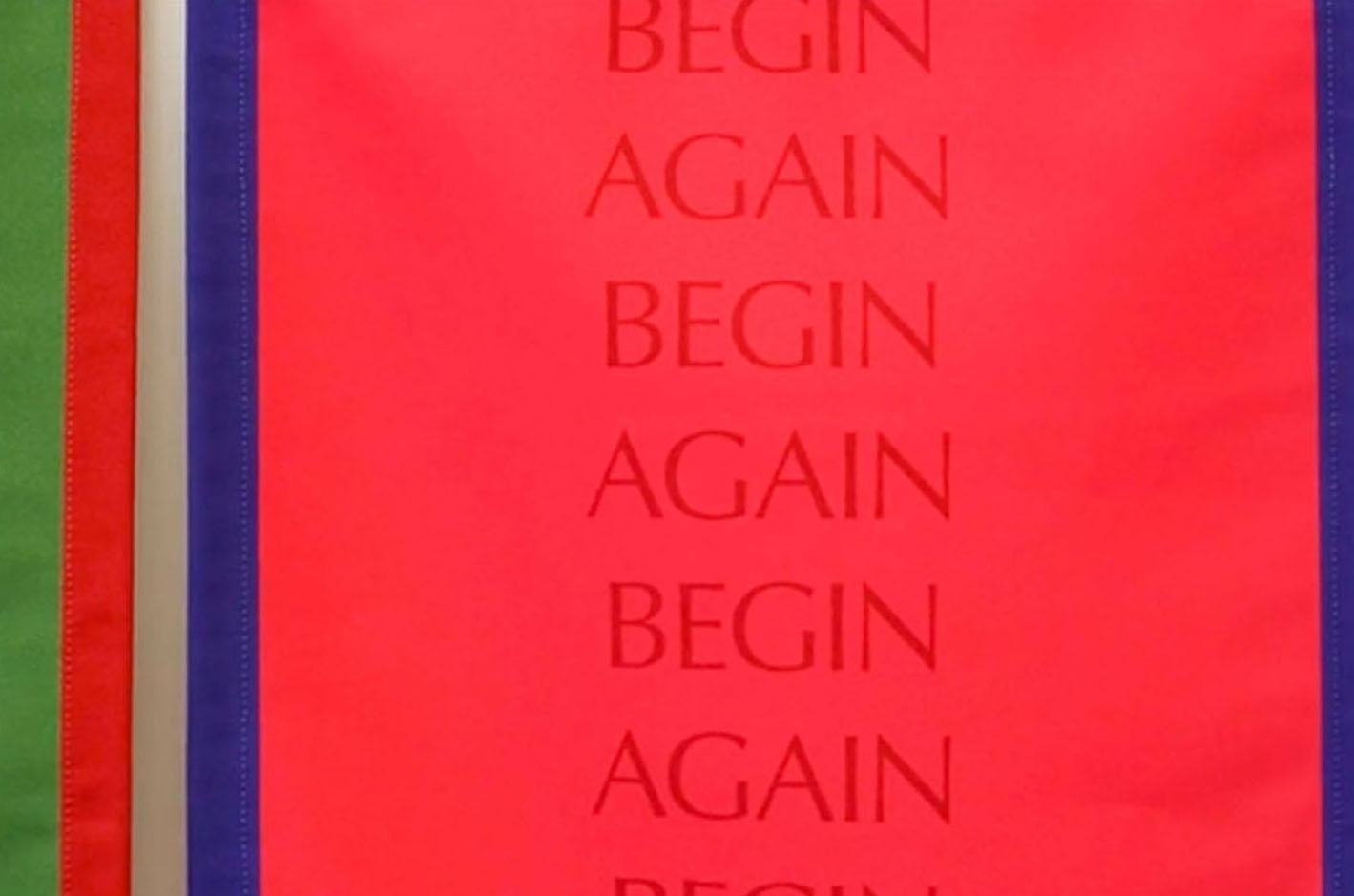Renée Green and Ute Holl

Begin Again, Begin Again (I.1887-1929)
(2015, 12′) by Renée Green
ED/HF (2017, 33′) by Renée Green
Discussion: Renée Green, Ute Holl
Session duration: 150 Min. | M / 16
Entry is free and limited to the number of seats available.
With the collaboration of Calouste Gulbenkian Foundation, the first programme presents an exchange between artist Renée Green and researcher Ute Holl, accompanied by a screening of Green’s Begin Again, Begin Again (I.1887-1929), and the Portuguese premiere of her 2017 film, ED/HF. The first stanza of a homonymous longer film, Begin Again, Begin Again (I.1887-1929) is a probing passage through forms of inhabiting, occupying, and the myriad sensations and perceptions that flow through the process of staying alive. The Austrian architect R. M. Schindler is invoked via his 1912 Manifesto, “Modern Architecture: A Program”, yet the numbered pronouncements are interrupted by another consciousness’ musings on the strangeness of survival. Conceived as a ‘film as a conversation’, Green’s ED/HF is a cinematic meditation on lived experience, writing, film and ongoing becomings. At first glance, ED/HF could be described as a double portrait of Green and artist and filmmaker Harun Farocki, but ED/HF’s primary focus is guided less by a binary comparison of these two personas, than by the pair’s personal experiences of migration and the legacies of displacement that have affected both artists and their work. Questions of language, history, and image reproduction technologies are rendered into a touching threnody, a mournful celebration of the power of art, film and poetry.
Renée Green is an artist, writer, and filmmaker. Green’s most recent project, Pacing, was a two-year engagement with the Carpenter Center for Visual Arts, Cambridge, MA. Her work has been widely presented in museums and biennials around the world, including MAK Center for Art & Architecture (Los Angeles), Lumiar Cité (Lisbon), MoMA (New York), Yerba Buena Center for the Arts (San Francisco), Musée Cantonal des Beaux Arts (Lausanne), Jeu de Paume (Paris), Portikus (Frankfurt), MOCA (Los Angeles), Museum of Contemporary Art (Chicago), ICA (London), Centre Georges Pompidou (Paris), Manifesta 7 (Trento) and Documenta 11 (Kassel). Her recent books include Other Planes of There: Selected Writings (Duke University Press, 2014), and Endless Dreams and Time-Based Streams (Yerba Buena Center for the Arts, 2010). She’s the editor of Negotiations in the Contact Zone / Negociações na Zona de Contacto (Assírio & Alvim, 2003). Green is Professor at the MIT Program in Art, Culture and Technology, School of Architecture & Planning.
Ute Holl is a professor in media aesthetics at the University of Basel. She has worked on the epistemology of technical media, on anthropological and experimental cinema, and on a media history of acoustics, electro-acoustics, and radio theory. She is the author of several books, including Cinema, Trance and Cybernetics (Amsterdam University Press, 2017), e Moses Complex: Freud, Schoenberg, Straub/ Huillet (University of Chicago Press, 2016), Memoryscapes: Filmformen der Erinnerung (with Matthias Wittmann, Diaphanes, 2014). Her current research projects include ‘Radiophonic Cultures – Sonic environments and archives in hybrid media systems’ and ‘Afterimages of Revolution and War. Trauma- and Memoryscapes in Iranian Postwar-Cinema’.
Films, especially those that are considered as documentary, appeal to our thinking of reality in a particularly challenging way. While their indexical link to the reality they approach grants the images and sounds a specific credibility, the position of the artist, her aesthetic, thematic and political choices, her subjective understanding and artistic sensibility, determine how this reality is mediated. While in mass-media, the mediation part is often omitted (and thus, the images are presented, ideologically, as objective representations of the factual reality), critical filmic artworks include the part of mediation in order to address it productively through their very aesthetic constitution, thereby raising a wide range of questions which are also central to philosophical thinking. For reflecting on the relation between the factual world and its subjective appropriation, questioning hegemonic claims to objectivity and authority, and problematizing the inherent contradictions of society, are immanently philosophical issues. Artistic documentary films and philosophical thinking, notwithstanding their very different forms, figures and aims, thus share the concern of addressing the complex relation between the empirical world and its mediation through perception, signs and concepts. What does it mean to approach reality critically through an artistic form? How do filmic constellations think and make us think, instead of generating an impression of obviousness and immediacy? How can a specific truth-content be disclosed through montage, rhythm or an arrangement in constellation? What is the agency of a particular artistic form in relation to its content? How can political, ethical or epistemological problems be addressed through an intelligibility of the sensitive? And how can philosophical thinking help us to seize its impact and unfold its different strata of meaning?
These encounters between film-artists and philosophers of international renown aim to confront these and other questions, starting every time from a particular film which will be screened in its entirety. In these encounters, film and conceptual thinking are considered on a par: instead of privileging one field over the other, these interventions focus on the very moments where film and philosophy enter into a productive dialogue. Thus, the point is not to elaborate general theories on film as a medium or aesthetic positions on art in general, nor is it to use films as an illustration of broader concepts of reality, rather, priority will be given to the singularity of a filmic moment embedding conceptual thought, or the singularity of a conceptual moment triggering an artistic form.
session 3: Maria Augusta Ramos/Patricia Mourão
session 4: Emily Wardill/Michael Marder
session 5: Albert Serra/Alexander García Düttmann
session 6: Jean-Gabriel Périot/Alain Brossat
session 7: Judith Barry/Giovanni Tusa

